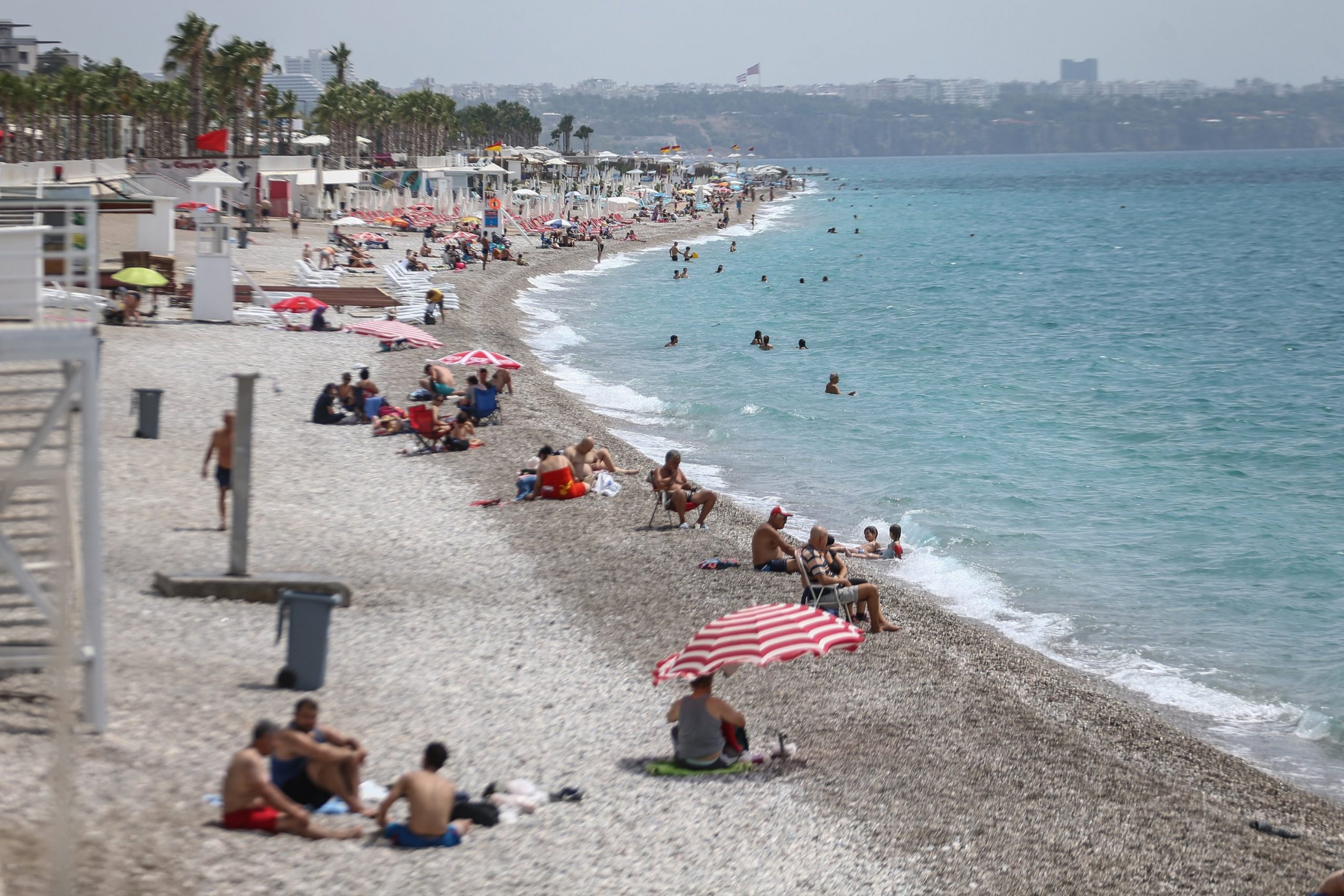In normal times, tourists must rise at dawn to secure a free sunbed on the beach in Antalya, a popular holiday resort in southern Turkey.
Today even after sleeping in, the best locations are still available.
As everywhere, the coronavirus pandemic has hammered the tourism industry – a vital Turkish economic sector that welcomed a record 50 million foreign visitors last year.
But with the lifting of restrictions around the world, including the gradual opening of airline connections, Turkey is trying to lure tourists to save what it can of the summer season.
At a luxury hotel on the Mediterranean coast, floor markings invite customers to respect social distancing, disinfectant gels are placed at the entrance to elevators and restaurants and all staff wear protective face masks, according to Agence France-Presse (AFP) journalists who participated in a press trip organized by the Turkish tourism ministry.
“We have taken strict measures to protect our employees and tourists,” Tourism Minister Mehmet Nuri Ersoy told AFP in an interview.
“Turkey is the best-prepared country” to welcome travelers, he said.
The minister last week unveiled the “safe tourism” certificate, awarded on the basis of 132 criteria hotels and restaurants must meet to be able to accommodate customers in proper sanitary conditions.
About 500 establishments have received that label and authorities hope to quadruple the figure in the coming month.
Reconfigured hotels
To earn the tourism ministry’s label, hotels must also set up a separate section to isolate tourists who test positive for COVID-19.
“We had to reconfigure our establishments. Despite these additional expenses, we will not increase prices,” said Sururi Çorabatır, president of the Federation of Turkish Hoteliers (TÜROFED).
The government has also introduced a health insurance scheme – 23 euros ($26) worth – covering hospital expenses for COVID-19 patients. Travelers can sign upon arrival.
The stakes are high: from hoteliers to restaurateurs, along with farmers who sell their products in the region, the pandemic has upended the lives of all those who live off tourism in Antalya.
The area nicknamed “Las Vegas without a casino” for its luxury resort hotels looks like a ghost town. Except for some pharmacies, all shops and restaurants are shut down.
“In 2019, we received 35 million passengers, including 15 million from abroad. Since the beginning of the year, the total number is less than a million,” said Deniz Varol, director-general of Antalya airport.
In the airport, thermal cameras take passengers’ temperatures, a quarantine room has been set up and a center with the capacity to carry out 20,000 tests a day has opened.
Negotiations
In the absence of foreign tourists, some Turks enjoy a quiet vacation.
Deniz Kaya, who comes to Antalya every year, has never seen the city “so empty.”
“People are careful, they spend their holidays respecting social distancing rules,” she said while tanning by the pool.
Foreign tourists from certain countries began to gradually arrive in Turkey last week, but numbers will increase in the upcoming weeks as more countries lift restrictions on international travel. The reopening of flights for most nations will be completed in August.
Most of the travelers are expected to arrive in Turkey’s leading touristic areas, which includes the southern resort city of Antalya and the vacation towns of Bodrum and Dalaman, as well as western Izmir province and Istanbul.
However, the number of arrivals will depend on negotiations with tourists’ home countries including Germany which has placed Turkey on a list of destinations it considers “coronavirus risk areas,” and Russia – one of the most infected countries in the world. Turkey sends data on virus cases in its coastal resorts to Germany daily, and invited a Russian delegation to observe measures taken by hotels.
According to official figures, Turkey has recorded 5,000 virus-related deaths and nearly 190,000 cases. The number of cases registered daily has recently increased after the lifting of restrictions that were in place.
Despite all the difficulties, Ersoy remains optimistic.
In 2016 – a year marked in Turkey by an attempted coup and several terror attacks, “there was a serious crisis followed by a very strong rebound,” he recalled.
“Bookings for 2021 are piling up: Tourists have not forgotten Turkey, on the contrary.”
Last Updated on Jun 23, 2020 1:52 pm










Discussion about this post